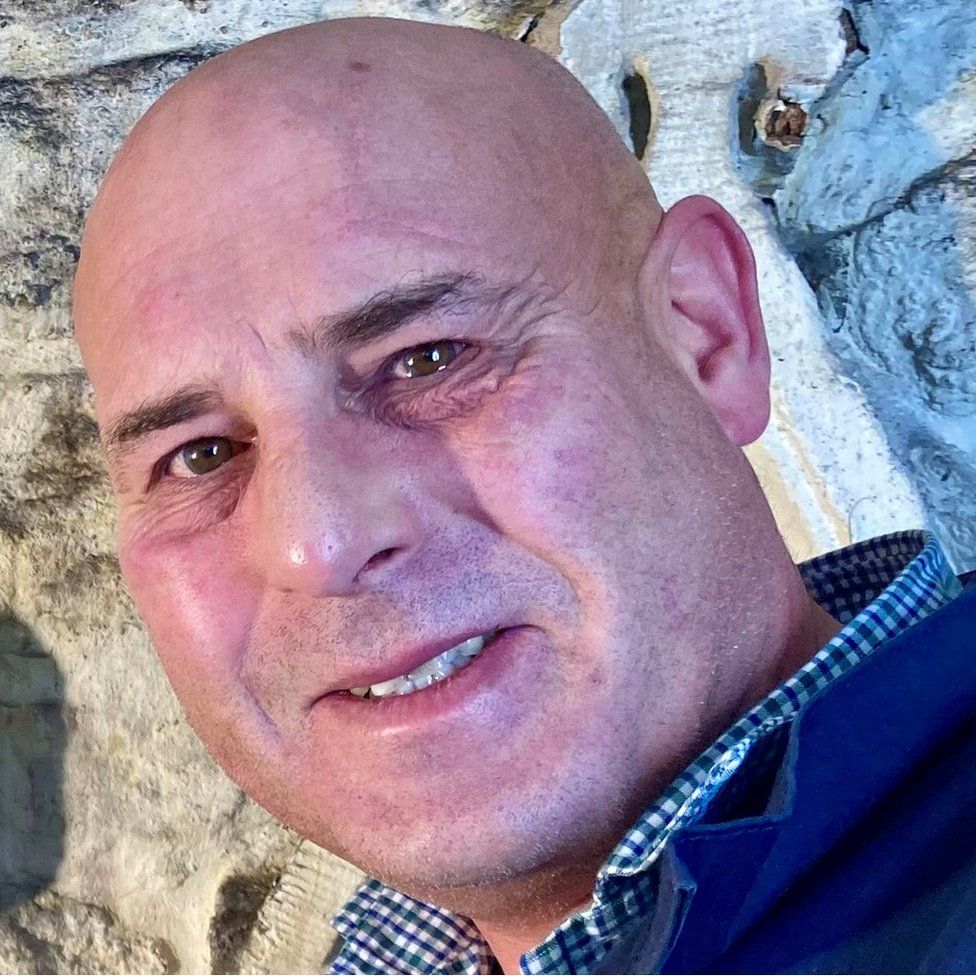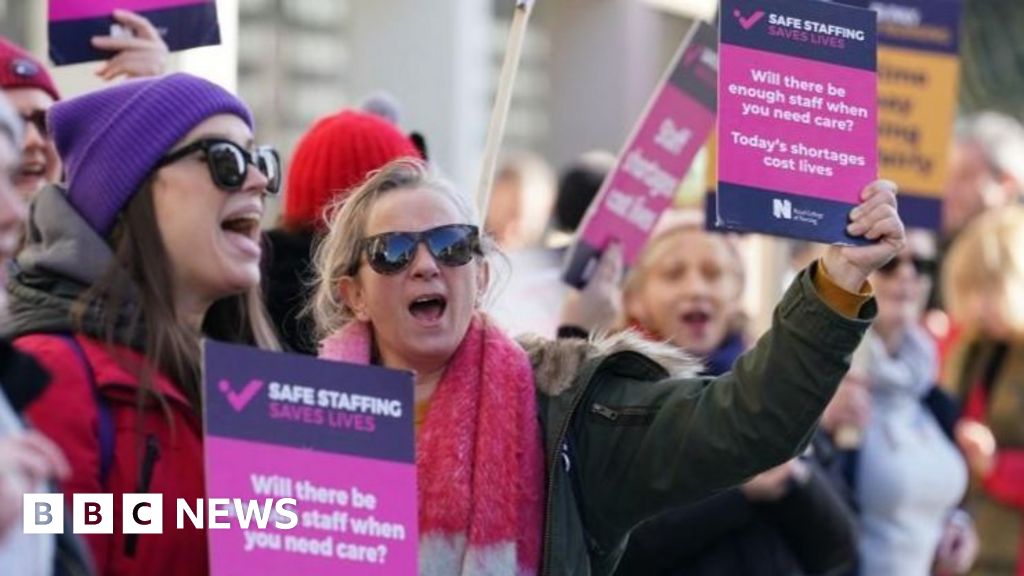ARTICLE AD BOX

Daren Frankish experienced his first cluster headache when he was 37
By Angie Brown
BBC Scotland, Edinburgh and East reporter
For 17 years, Daren Frankish has been suffering from headaches so agonising they leave him screaming and banging his head off walls.
The 53-year-old from Edinburgh says they feel like he is being hit full-force with a baseball bat, while being stabbed in the eye with a knife.
Officially known as cluster headaches, they are thought to be one of the most painful conditions to affect a human being.
"During lockdown I had to walk to the hospital and I remember thinking if a bus came along I would jump in front of it - so I know why they are called suicide headaches," the horticultural engineer told BBC Scotland News.
"I live in fear of the next attack, it frightens the life out of me. It's a psychological torture knowing it can come at any time, I'm so scared of them."
Attacks normally last between 15 minutes and three hours and can happen in clusters of seven or eight in a day.
But Daren has also endured episodes which have lasted 12 hours.
He says they begin with shooting pains on the left side of his head, above his eye.
"My left eye starts to go red, starts to droop and waters profusely. My nose blocks up and a severe pain starts in my head," he said.
"I can only describe the attack as awful. It is like someone has hit you full swing with a baseball bat. It also feels like a knife has gone through above my left eye and then been levered down.
"I get very restless and sometimes physically sick, I scream into a pillow, bang my head on the wall or anything hard, I usually pace around my living room in pitch darkness as I cannot tolerate any light."
An attack starts with Daren's left eye watering and drooping
Daren sometimes goes for a walk holding a cloth over his left eye as it waters severely.
He walks in empty places and carries a card in case someone tries to talk to him.
"I am unable to communicate with anyone when I am going through an attack," he said.
Daren said that recently his attacks were becoming more frequent and lasting longer.
Last May he spent two nights in the A&E department at the Royal Infirmary in Edinburgh after two attacks, each lasting 12 hours.
"These attacks where excruciating and the worst attacks I have ever experienced," he said.
What are cluster headaches?
Image source, Doug Armand/ Getty Images
Cluster headaches are rare, affecting about one in 1,000 people - an estimated 65,000 people in the UK.
But it's a misnomer for a condition that is "so much more than a headache", according to Katie Martin, Brain Research UK research manager.
"As Daren has described, the excruciating pain of a cluster attack is unbearable, leaving people screaming in pain, and banging their heads off walls to try to end the agony.
"We're funding desperately-needed research to accelerate our understanding of the condition, towards the development of new treatments that will provide effective relief for all those affected."
Sufferers are normally over the age of 30, and the headaches are more common in men than woman.
The frequency of attacks may vary from one attack every few days to multiple attacks per day. Each attack may range from 15 minutes to several hours.
They cause multiple admissions to hospital, restricting people's lifestyles and often leading to unemployment.
They are also associated with a threefold increase in risk of depression and suicidal tendencies are often reported.
Daren walks carrying a card explaining his condition because he cannot speak during an attack
Daren had his first episode in 2007 when he was 37.
"I was on holiday with my family in Prague when I got a got a headache that was so severe I thought there was something seriously wrong with me like a brain tumour," the father-of-two said.
He has since been prescribed medication including steroids, lithium, heart medication and epilepsy tablets.
"I don't have epilepsy but they are trying everything on me but nothing works.
"I also have an injection which I can use as soon as an attack comes on, which sometimes works."
Daren has oxygen canisters in his house, which he uses to try to stabilise an attack.
He has tried different diets and cutting out smoking and alcohol but continues to have the crippling headaches.
"The next step is I'm going to have a nerve block injected into my head," he said.
The local anaesthetic numbs the nerves in the short term. The steroid reduces inflammation. It can reduce attacks for up to a year.
"I'm willing to take the risks of having this because these suicide headaches severely affect my life," he said. "They destroy everything and I can't do anything when the attacks happen.
"It put pressure on my marriage and was part of the reason for my divorce and I feel awful for my kids growing up hearing my screams."
Daren has read some evidence to suggest cluster headaches can be caused by meningitis - which he had when he was two and again when he was 12 years old.
For now he has to live with them.
"It does it when it wants, I have no control over it. When it comes for you, it gets you," he said.
Find more information and support about suicide and feelings of despair at BBC Action Line.
Around the BBC
Related Internet Links
The BBC is not responsible for the content of external sites.

 1 year ago
62
1 year ago
62








 English (US) ·
English (US) ·